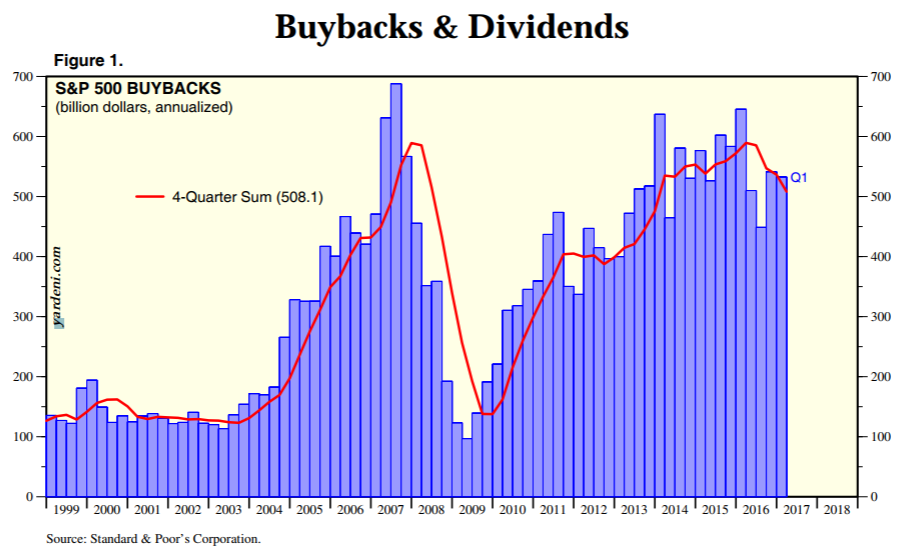I love that bullshit claim.
If WalMart fired every employee who collected "public assistance funding" would taxpayers spend more or less on "public assistance funding"?
You are looking at it wrong and you had it right with your first response. If the government eliminated that assistance Walmart would pay more. The best option is to tax Walmart the amount of any public assistance collected by their employees. Then Walmart would simply boost the pay because believe me, they can more than afford it. I have seen the numbers from inside. As it is, that government assistance is merely subsidizing Walmart's profits and half of those profits go to the Walmart family.
You are looking at it wrong and you had it right with your first response.
I'm looking at it correctly in both responses.
The best option is to tax Walmart the amount of any public assistance collected by their employees.
Why?
As it is, that government assistance is merely subsidizing Walmart's profits
You're looking at it wrong. WalMart is subsidizing public assistance.
Taxpayers would spend a lot more on assistance if WalMart didn't employ so many people.
Not sure you have a valid argument in regards to more assistance if Walmart didn't employ so many people. The Earned Income Credit increases as income increases to a certain point, then it begins to decline. Interestingly enough, that sweet spot, where the EITC is the maximum, is right around what a low level fulltime Walmart employ would make. With two kids, we are talking more than six grand a year. If they didn't work, it would be zero. And in the case of the Walmart employee that EITC is most certainly a wage subsidy.
Now the reason taxing Walmart the value of any government assistance received by their employees is the best option is because Walmart would derive no savings by using those public assistance programs as wage subsidies. But yet it would not eliminate those public assistance programs from those that really need them. And don't get me wrong, every company that has employees receiving public assistance should be taxed the amount those employees are receiving. In regards to the EITC there is already a program in which the employee can get that credit on their weekly, bi-weekly, or monthly paycheck. The employer pays the credit forward and then deducts that payment from their tax liability. We can just eliminate the deduction from the employers tax liability and poof, we have just taxed them the value of the EITC. Hell, Trump could probably do that with an EO.
Not sure you have a valid argument in regards to more assistance if Walmart didn't employ so many people.
OK, assume the Americans for tax fairness claim above, WalMart workers cost taxpayers $6.2 billion every year.
Assume those employees all lose their jobs.
Show me how much less the government pays them in "government assistance programs".
Here's the source for the blurb.
U.S. Taxpayers Subsidize Walmart’s Low Wages and Low Benefits: $6.2 Billion a Year (Estimate)
This $6.2 billion estimate is based on a study prepared by the Democratic Staff of the U.S. House Committee on Education and the Workforce in May 2013.9 The study estimated the cost to Wisconsin’s taxpayers of Walmart’s low wages and benefits, which often force workers to rely on various public assistance programs. It found that a single Walmart Supercenter cost taxpayers between $904,542 and $1.75 million per year, or between $3,015 and $5,815 on average for each of 300 workers.10
This report takes the mid-point of that range ($4,415) and multiplies it by Walmart’s approximately 1.4 million employees11 in order to estimate the nationwide cost to taxpayers of Walmart employees’ use of public assistance programs. Programs that are included in this estimate include the National School Lunch Program, School Breakfast Program, Section 8 Housing Program, Earned Income Tax Credit, Medicaid, Low Income Home Energy Assistance Program, and the Supplemental Nutrition Assistance Program (SNAP, commonly known as food stamps). Table 2 presents estimates of public assistance costs for Walmart employees by state, which range from $2.6 million in the District of Columbia to $682 million in Texas.
Ironically, while Walmart relies on public subsidies to support its employees, the company also makes billions from sales to customers who depend on SNAP and other taxpayer-funded benefits. In February, Walmart executives even cited cuts to the food stamp program to help explain the company’s declining sales.12 In a subsequent disclosure to shareholders, risk factors cited by Walmart management included downward pressure on revenues from “… changes in the amount of payments made under the Supplement Nutrition Assistance Plan and other public assistance plans, [and] changes in the eligibility requirements of public assistance plans …”13
Walmart told analysts last year that the company has captured 18 percent of the SNAP market.14 Using that figure, we estimate that the company accounted for $13.5 billion out of $76 billion15 in food stamp sales in 2013. See Table 3 for state-by-state estimates of Walmart’s revenue from food stamps and an explanation of the methodology used to derive these estimates.
https://americansfortaxfairness.org/files/Walmart-on-Tax-Day-Americans-for-Tax-Fairness-11.pdf
The Earned Income Credit increases as income increases to a certain point
As you can see, they weren't talking about the EITC.
Now the reason taxing Walmart the value of any government assistance received by their employees is the best option is because Walmart would derive no savings by using those public assistance programs as wage subsidies.
Excellent! You've discovered that the best way to help low skilled employees is to make sure they're never hired in the first place.
We can just eliminate the deduction from the employers tax liability and poof, we have just taxed them the value of the EITC.
Eliminate the deduction, the employer stops "paying the credit forward".
Poof! Employees can wait to receive it until they file.

